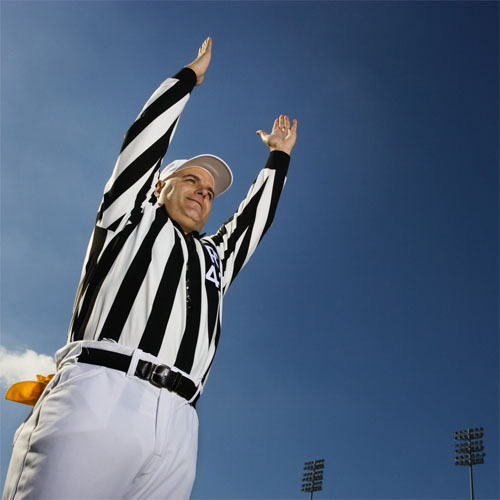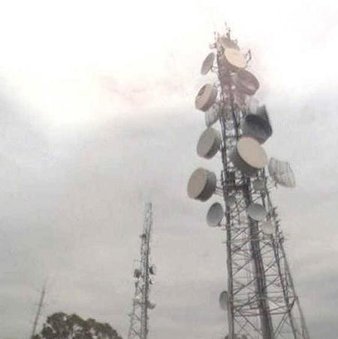
Zebra
Somewhere in, NJ
Male, 62
I've officiated football for over 30 years, now in my 26th on the college level. I've worked NCAA playoffs at the Division II and III level. In addition, I've coached at the scholastic level and have been an educator for over 35 years. I have no interest whatsoever in being an NFL official! Ever!
I will definitively say, maybe. If the lineman maintains contact with the rusher and the opponent ends up facing away from the blocker, then no. It's continuous action and the original contact - that was legal - is continuing. However, if the defender gets past him and contact is lost, and then the O lineman pushes him in the back, then yes it can be IBB.
First, in the NFL, outside of two minutes remaining in each half, the clock is started once the ball is spotted after the runner goes out of bounds. And the clock is stopped when a runner goes OOB. Now, in your situation, the only thing I can think of is that Brown had forward progress and then was pushed OOB. In that case, he technically didn't go out of bounds. Rather, he was stopped while in bounds and that ended the play. Not the going OOB.
Yes. As long as he doesn't impede the rrceiver's opportunity to catch.
Hey, coach! Tell your player to either catch it in the field of play or in the endzone. No indecision!!
Generally, officials will give the player the benefit of the doubt and say he's in the endzone. But if he is obviously straddling the line as you describe, he's caused all of us problems. It matters where the ball is, not the player. But if he throws it, he just screwed the pooch. If he throws it backwards, it's alive and the kicking team could recover it. If he throws it out of bounds backwards, it's a safety. If he throws it forward from the endzone, it's an illegal forward pass and the penalty is marked from the spot of the foul -- safety.
Help Desk Technician
Radio program/music director
 What's your take on the whole Don Imus racism scandal?
What's your take on the whole Don Imus racism scandal?
Border Patrol Agent
 Do Mexican authorities help on THEIR side of the border?
Do Mexican authorities help on THEIR side of the border?
If a player "gives himself up" (clearly indicates he is not running it out), the referee will whistle the play dead. Tossing it to the ball boy likely occurred after the whistle blew.
Yo? Really?
No. What you describe is a foul. Intentionally kicking a ball - not a scrimmage kick - is a foul.
I wish I had seen this - it's the second question about it. Here's the answer - repeated: A player is moving forward until he isn't. If a runner collides with a teammate and falls down, he's down. Once the runner's own action stops propelling him forward - unless he runs backwards of his accord - he has ended his "forward progress". And to add/clarify: It is where the ball is when his forward movement ends, whether tackled or he falls on his own or after contact with his teammate.
-OR-
 Login with Facebook
Login with Facebook (max 20 characters - letters, numbers, and underscores only. Note that your username is private, and you have the option to choose an alias when asking questions or hosting a Q&A.)
(A valid e-mail address is required. Your e-mail will not be shared with anyone.)
(min 5 characters)
By checking this box, you acknowledge that you have read and agree to Jobstr.com’s Terms and Privacy Policy.
-OR-
 Register with Facebook
Register with Facebook(Don't worry: you'll be able to choose an alias when asking questions or hosting a Q&A.)